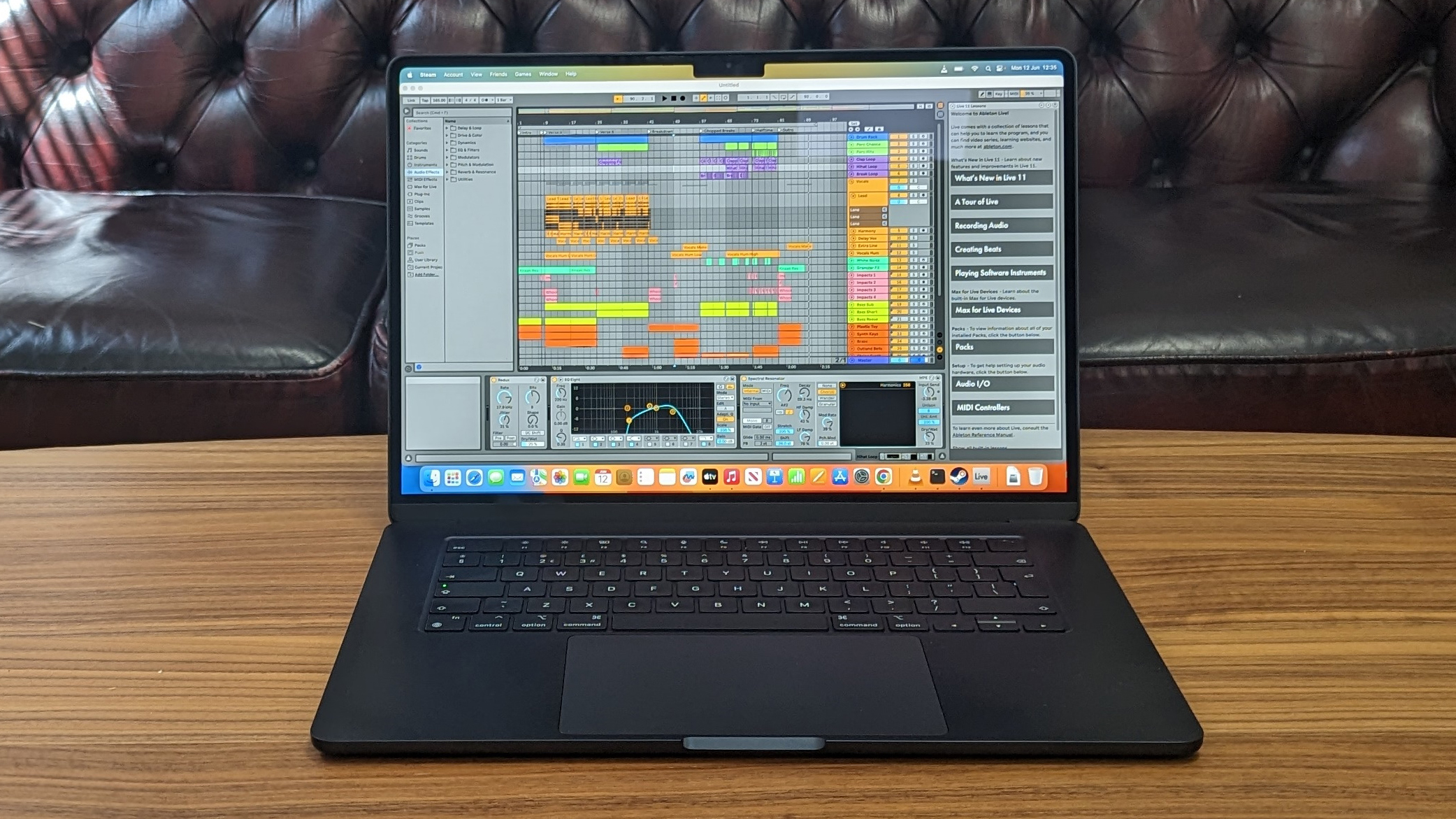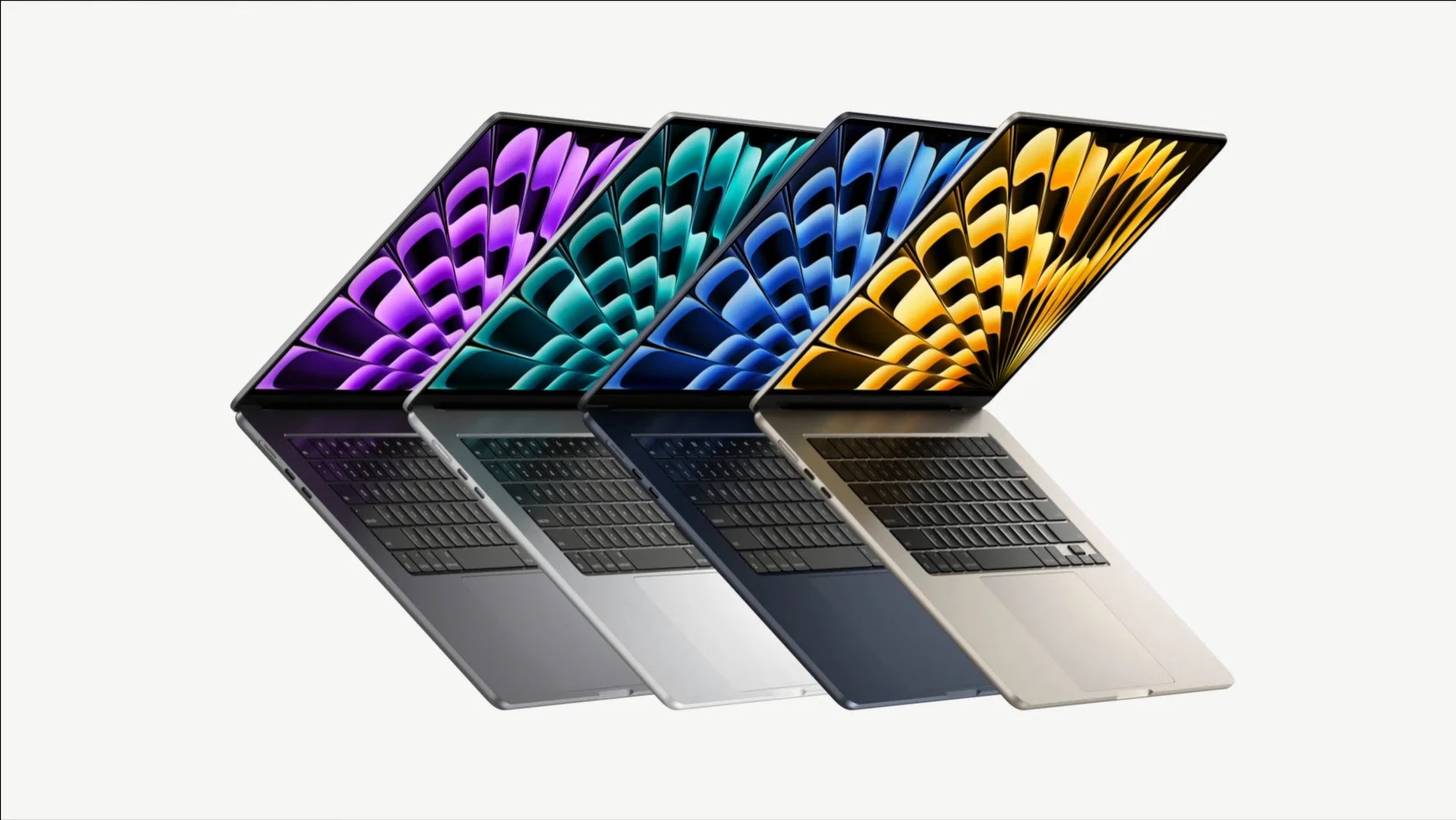Yes, your Mac's storage is hamstrung, but you wouldn't even know it if I didn't tell you
It just doesn't really matter.

Sign up for breaking news, reviews, opinion, top tech deals, and more.
You are now subscribed
Your newsletter sign-up was successful
OK, so here's the deal. Apple has started a new trend where it uses half the number of NAND storage chips in some of its Macs, impacting read and write speeds as a result. And it's really upset some people.
But it shouldn't. There, simple. I saved you reading a thousand words explaining things. You're very welcome.
But let's just say that you might have some time to spare and you need something to do. For you, I'll write those words anyway. You're also welcome.
Now, let's dive into what I'm just now coining "NAND-gate."
The problem
So, let's start from the beginning.
There was once a time when nobody cared what storage configuration Macs had so long as they had enough of it. But that was pre-M2, and before the M2 13-inch MacBook Pro and MacBook Air launched.
When they did, everyone marveled at just how fast those M2 chips were. The Macs had great displays, and their batteries could last for actual days, not hours, depending on usage. But there was a problem. They weren't all that fast when put through their paces using tools like the Blackmagic speed test tool. That tool is designed to see how quickly a Mac can read and write data to its storage. And something was afoot.
Sign up for breaking news, reviews, opinion, top tech deals, and more.
Reviewers found that those who had been sent the base model of their respective Macs were seeing slower transfer speeds than those whose Macs had upgraded storage. But why?
YouTuber Max Tech set about ripping its 13-inch MacBook Pro apart to get to the bottom of things. And that's when we found out that Apple was using a single NAND chip for storage on the 256GB versions of its new M2 Macs. Upgrade the storage to 512GB or more, and Apple used 2 x 256GB NAND chips (or larger) to get the job done and boom — things were fast again. The M1 Macs, for completeness, were using two 128GB chips to get their total 256GB of storage.
It all stands to reason. Having more storage chips allows macOS to read and write more quickly because it isn't constrained by how quickly a single chip can process that data. It's slightly more complicated than that, and the internet is your friend if you want all of the nitty-gritty details. But they're beyond the scope of this rant, so we'll move on.
So how much slower were the new Macs with their single NAND chip? Well, quite a bit.
Tests run by Max Tech suggested that the M2 Macs were around 50% slower reading and around 30% slower when writing data than their M1 counterparts.
And that's when the internet lost its mind.
Is it really a problem, though?
Except, it shouldn't have. Because as people who actually bought the machines would attest, none of this actually mattered because these M2 machines were still blindingly fast. And the people they were aimed at? They weren't moving data around at enough of a clip to even notice.
Remember, the impacted machines were the 13-inch MacBook Air, the 13-inch MacBook Pro, and the Mac mini. None of those were pro-level machines — and I'll argue that the 13-inch MacBook Pro isn't really a MacBook Pro until the cows come home.
The people who were likely to notice any issues in data transfer speeds were buying different Macs. Creatives, people who regularly shifted multi-gigabyte files around, do it on a 14 or 16-inch MacBook Pro. Or a Mac Studio, for that matter. And none of those Macs are afflicted by this "problem." Probably because Apple knows those Macs need all the performance they can get.
The only people who noticed that the SSDs in non-Pro Macs were slower (again, only in the base configuration) were people who were running benchmarks. And who does that on the daily?
Some people argued that with just 8GB of RAM, afflicted Macs would be hampered because they would have to swap to their SSDs a ton, causing system slowdowns. And they'd be right in theory. But as people soon found, that simply wasn't the case at all. People tried to actively make their M2 Macs slow to a crawl and couldn't do it. The problem simply didn't exist.
History repeats itself

This was all in the middle of 2022. But fast-forward a year and we're here again. Apple announced the 15-inch MacBook Air during WWDC on June 5, and it's undoubtedly the best Mac for most people. It has a large display, a fast M2 chip, and other great features.
But it also, in 256GB configuration, only has a single NAND chip. And again, people are complaining that it's slower than it should be.
Really, are we going to do this again?
An avoidable issue
Having said all of that, and still absolutely convinced none of this matters, I still find myself a little irritated by the whole thing. Because it was so avoidable.
If Apple had stuck to its manufacturing methods from the M1 Macs and doubled up on NAND chips, none of this would have happened. Nobody would be running Blackmagic on their Mac to make sure its SSD hadn't been nerfed. And I wouldn't be writing this piece.
Why did Apple make the change, anyway? There are a couple of theories. The first is that it's just cheaper for Apple, while the other is that there was a shortage of 128GB chips, so it went with a single 256GB one instead.
Except, I take umbrage with both.
On the subject of cost, I feel that Apple could possibly have just eaten it. Apart from the Mac mini, none of these machines are cheap. Not by a long shot, and sometimes companies need to just do the right thing. In this instance, doing the right thing would have meant making sure the new Macs had the same or better SSD performance as the ones that they replaced.
On the subject of availability, I'm not sure I buy that excuse, either. This is Apple, and it has huge buying power. If it wants to buy the world's supply of SSDs, it can do it. Again, it might have cost more to do it, but Apple is the one company that can. It's putting insane amounts of technology into the $3,499 Vision Pro headset. Surely it could get some NAND chips together, right?
Right. But at the end of the day, when all is said and done, and any other cliche I can't think of right now, does it really matter?
It matters to benchmark testers, and it matters to people who aren't cross-shopping any of these affected Macs anyway. And it matters to me because I'm irked Apple ever put us into this position.
But do you know who it doesn't matter to? Anyone who bought an M2 MacBook Air and is too busy marveling at how quickly their apps load. Even if they could load a fraction of a second quicker if they'd plumped for the 512GB of storage instead.

Oliver Haslam has written about Apple and the wider technology business for more than a decade with bylines on How-To Geek, PC Mag, iDownloadBlog, and many more. He has also been published in print for Macworld, including cover stories. Having grown up using PCs and spending far too much money on graphics card and flashy RAM, Oliver switched to the Mac with a G5 iMac and hasn't looked back.
